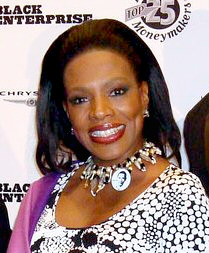A Quote by Ben Dolnick
People often talk about the characters in books as if they were considering whom to invite to a dinner party. 'Oh, I just hated her - she was so mean.' 'He's a bully; I didn't like how he treated his mother.'
Related Quotes
This is new to us, you know? Your mother's sorry. She's sorry that she hurt your feelings, and she wants you to invite your girlfriend over for dinner." "So that she can make her feel bad and weird?" "Well she is kind of weird, isn't she?" Park didn't have the energy to be angry. He sighed and let his head fall back on the chair. His dad kept talking. "Isn't that why you like her?
One thing I know is that it is a bad idea to marry someone who had bad parents. If they hated their mother, if they were hated by their mother or father, your marriage will pay for it in ways both obvious and subtle. When the chips are down, when someone is sick or loses their job or gets scared, the old patterns will kick in and he will treat you the way he treated his mother or the way she treated him.
She was in a terrible marriage and she couldn't talk to anyone. He used to hit her, and in the beginning she told him that if it ever happened again, she would leave him. He swore that it wouldn't and she believed him. But it only got worse after that, like when his dinner was cold, or when she mentioned that she'd visited with one of the neighbors who was walking by with his dog. She just chatted with him, but that night, her husband threw her into a mirror.
Octavia Spencer rocks. But just as a human being, she's so down-to-earth. Talk about being pleasantly surprised. You walk onto set, and she's making these jokes, and she's playing around with the cast and the crew, and she invited all to her house for a dinner party. She's just a genuinely good person.
My mother lived her life through movies and books - she read everything there was to read. And she read to me every night. I never went to sleep without her reading to me. And she fantasized about the book and she would talk about it, the place, and you would think that after she read the book and after she told you stories about it, that she had actually been there. I learned about story from her, and I learned the value of a great story, and the value of great characters.
It was not enough to be the last guy she kissed. I wanted to be the last one she loved. And I knew I wasn’t. I knew it, and I hated her for it. I hated her for not caring about me. I hated her for leaving that night, and I hated myself , too, not only because I let her go but because if I had been enough for her, she wouldn’t have even wanted to leave. She would have just lain with me and talked and cried, and I would have listened and kissed at her tears as they pooled in her eyes.
My mother was superb. Even when I said to her, when I was nineteen, oh, I'm going to India. Her immediate reaction was, oh yes dear, and when are you leaving? She didn't say, oh how could you leave me, your mother? Or wait a bit dear until you get a bit older and you know your own mind. She just said, well, when are you going? And that was because she loved me, not because she didn't love me.
At a certain point the family moved to Jaipur, where no woman could avoid the doli or purdah. They kept her in the house from morning to night, either cooking or doing nothing. [My mother] hated doing nothing, she hated to cook. So she became pale and ill, and far from being concerned about her health, my grandfather said, 'Who's going to marry her now?' So my grandmother waited for my grandfather to go out, and then she dressed my mother as a man and let her go out riding with her brothers.
I talk about folding it in often with Althea, my girlfriend. She's getting her doctoral degree at Berkeley and she talks about how even when writing these very academic, and, for the most part, serious papers there's just so much going on in her head and heart, and it's a reminder that there's a reason that she's studying these things.
What's weird is when you meet a girl who is 23 and you are talking to her, even her voice is high-pitched, she's young. You ask her how old she is, she says, 'Twenty-three, how old are you?' and when I tell her I'm 41 it's like I've just told her I have cancer. It's, 'Oh my God, how long have you had that?'






































